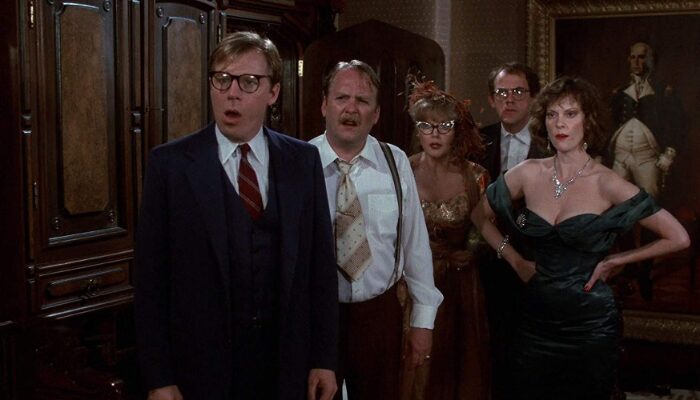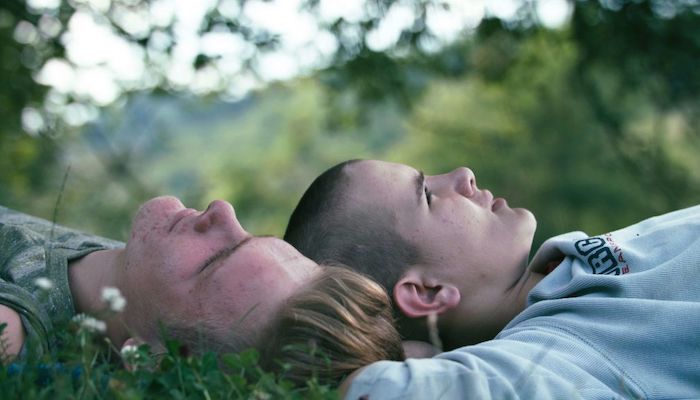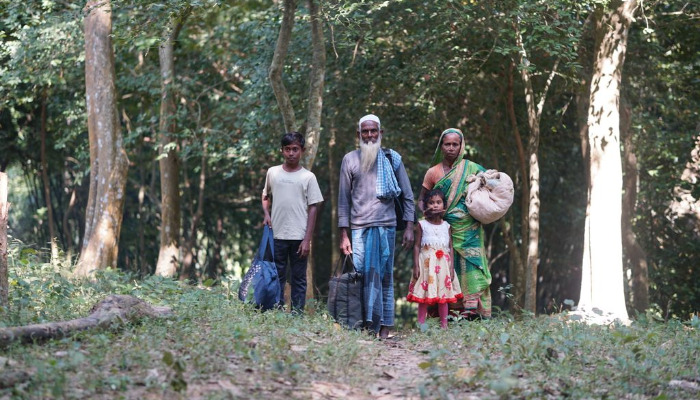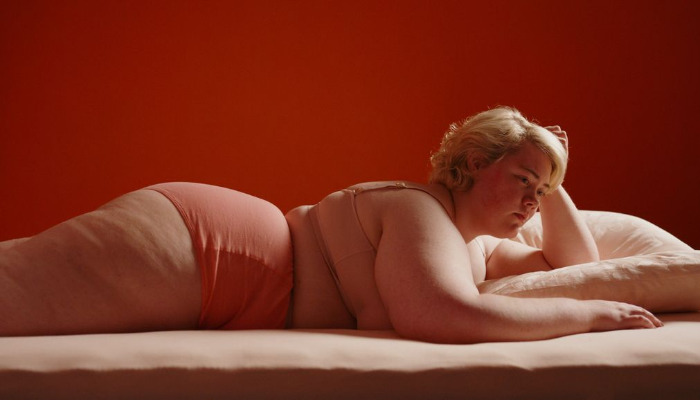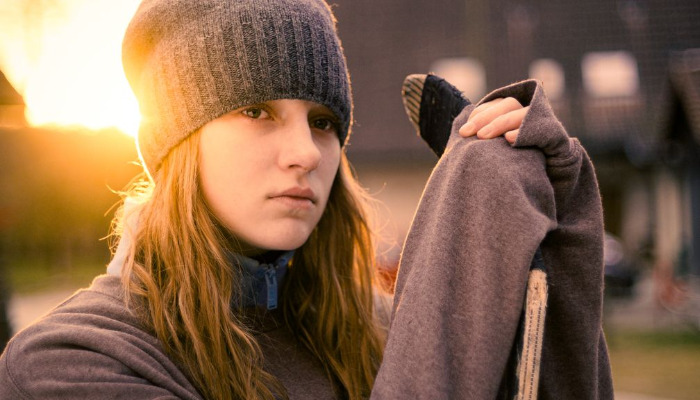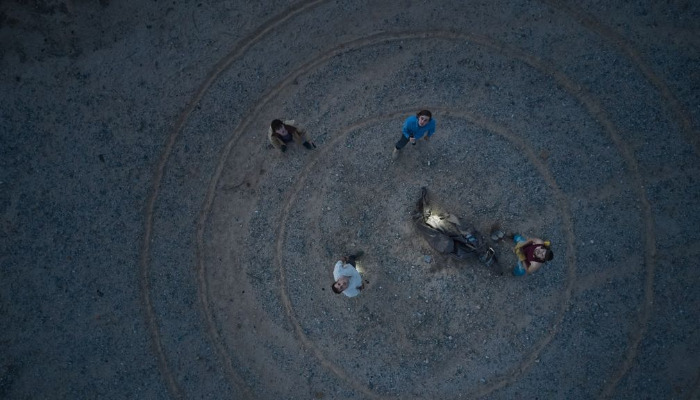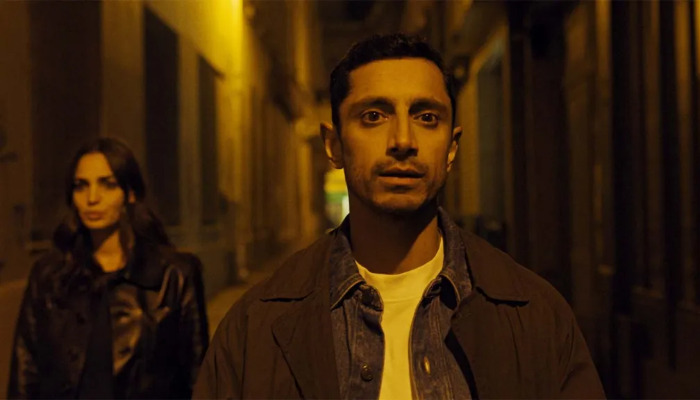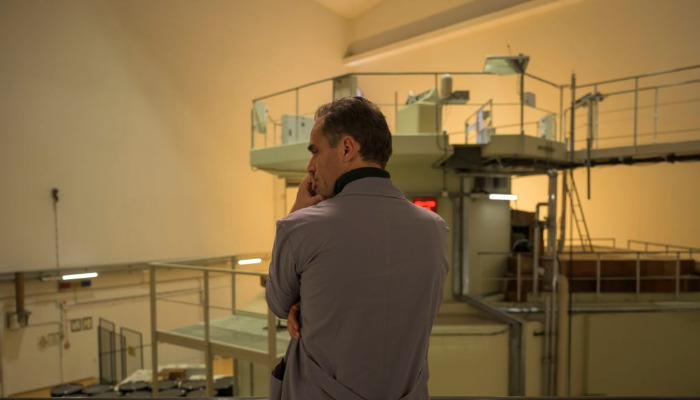Film Review: BROTHERHOOD: A Miniature Marvel of Documentary Filmmaking [Locarno 2021]
Brotherhood Review
Brotherhood (2021) Film Review from the 74th Annual Locarno Film Festival, a movie directed by Francesco Montagner, featuring Jabir Delic, Uzeir Delic, Usama Delic, and Ibro Delic.
Sometimes we become so accustomed to rigid structure and classification that we don’t even consider the alternatives. A is A, B is B, black is not white, vice versa; this binary thinking gives us tunnel vision that keeps us from seeing the world in other ways, and when something blurs the boundaries of one classification with another it feels both uncanny and revolutionary – the fabric of our reality being smeared in real time. It’s even a bigger surprise when you’re someone like me, your dear film critic, who was unaware that Francesco Montagner’s Brotherhood was in fact a stealth documentary hiding in indie drama form until long after the credits had rolled.
Reader, when I found out that truth, I was flabbergasted.
Filmed over at least four years in the farmland of Bosnia and Herzegovina, Montagner follows Jabir, Usama, and Uzeir Delic, three brothers who work for their shepherd father, Ibro, a devout Muslim who fought against the Serbs in the Bosnian War. Upon returning from a two-week trip to Syria, Ibro is sentenced to two years in prison on suspicion of aiding Islamic extremists. His sons find this highly unlikely as Ibro, though harvesting some conservative beliefs, is not a violent man, and his disability makes it unlikely that he would’ve survived any supposed fighting unscathed. But three young men from a poor farming background have little sway against a national government’s ruling, and thus they prepare for life on the farm without their dad.
Jabir, the oldest, is tasked with managing the property while looking for full-time labor in the city; Usama, the middle child, must oversee the flock of sheep and keep up their trade within local livestock markets; Uzeir, the youngest, should continue his education and help his brothers out when he can. As the months go by, the brothers’ bonds and their loyalty to their father are tested.
Usama and Uzeir, rife with adolescent rebellion, shirk their responsibilities while hypocritically admonishing the other for doing exactly the same thing. What’s more, the stories their father told them from his time in the Bosnian War begin to mix with the modern influences of radical Islam that they see with online, challenging their core ideological beliefs. But what’s more fascinating is how both Usama and Uzeir seem to waver in their extremism, toying with radical ideas on both sides as well as an apathetic disregard to religion on the whole, just to see if they’ll get a rise out of the other. But like the teenage edgelords they likely are, they pull back before wholeheartedly committing to any form of radicalism and instead just stew in all their pent-up emotions.
Jabir, on the other hand, doesn’t experience a conflict of faith but rather one of familial responsibility. As the oldest he’s feeling trapped in his family life and going nowhere fast. He wants to find a job in the city or even outside of the country (Germany looks promising to him), but in the meantime he’ll have to settle for drunken nights at the local club with his friends in-between keeping his younger brothers from tearing each other apart.
What makes Brotherhood so shocking upon realizing that it’s actually a documentary is how much it doesn’t feel like one at all. It’s impossible to know how much of this was staged or influenced by Montagner and how much of it was true unencumbered cinema verité, but since Montagner admits that he had to spend years gaining the trust of the Delic family in order to make this project in the first place it’s a safe assumption that it was a little bit of both. The final product is one of impeccable storytelling crafted from real-life struggle: the lows are low and the highs are never really high, because honestly, life doesn’t conform to your typical narrative structure.
But the fact that the film does, in fact, fit so well within traditional plot development and a three-act structure (not perfectly, but well enough), be it by pure coincidence or through Montagner’s careful construction with his editor Valentina Cicogna, is nothing short of miraculous. We watch the boys as they grow up over these few years – Jabir bulking out, Usama growing a bigger beard, and Uzeir going back-and-forth between bangs and a buzzcut – and that allows us an intimacy with their struggles, even if we may not be able to fully relate to them. If the filmmaking techniques actually are invasive then the filmmakers sure did a hell of a job convincing us that they’re not, and as a result potentially allude to a narrative drive that’s inherent within all of us humans – regardless of whether such a story-centric state of being truly exists.
Others have compared it to Honeyland or Fire at Sea, but I like to see it as Boyhood by way of Chloé Zhao … and, if I’m being quite frank, a better combo than either of them. It’s a fascinating look at young adulthood and responsibility when faced with true independence, and how you choose to go forward with it. A miniature marvel.
Rating: 8/10
Leave your thoughts on this Brotherhood review and the film below in the comments section. Readers seeking to support this type of content can visit our Patreon Page and become one of FilmBook’s patrons. Readers seeking more Fantasia International Film Festival news can visit our Locarno Film Festival Page, our Film Festival Page, and our Film Festival Facebook Page. Readers seeking more film reviews can visit our Movie Review Page, our Movie Review Twitter Page, and our Movie Review Facebook Page. Want up-to-the-minute notifications? FilmBook staff members publish articles by Email, Twitter, Facebook, Instagram, Tumblr, Pinterest, Reddit, and Flipboard.
Related Articles
FilmBook's Newsletter
Subscribe to FilmBook’s Daily Newsletter for the latest news!






